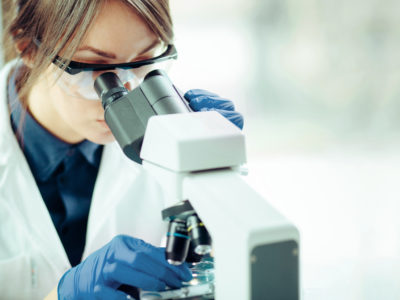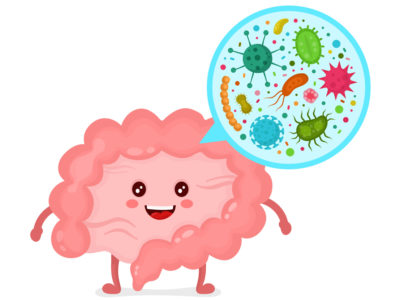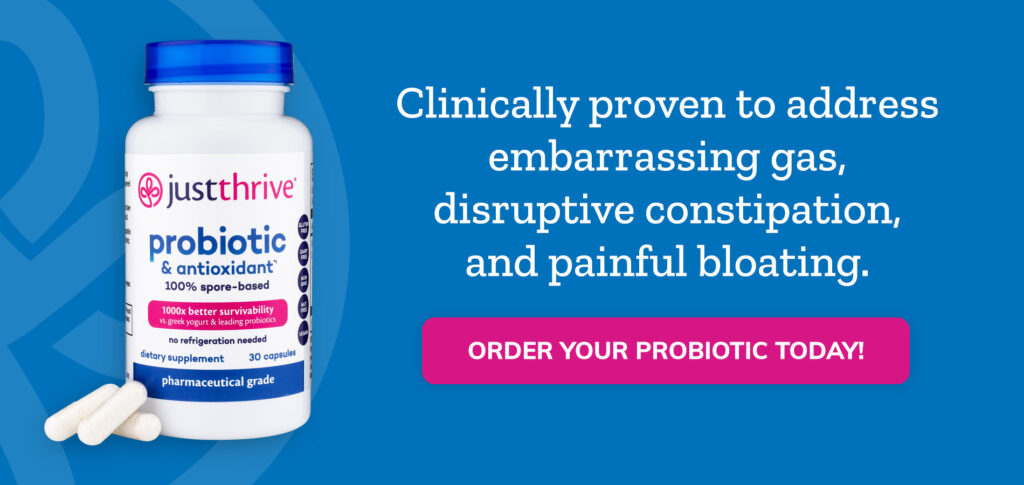Table of Contents[Hide][Show]
Believe it or not, bacteria can actually play a positive role in your health. They can help you digest food, neutralize toxins, boost your immune system, and even protect you from infections.
Unfortunately, the wrong kind of bacteria can also wreak havoc on your system, causing a number of health issues ranging from anxiety all the way to cardiovascular diseases.
And too much of either kind of bacteria can result in one serious gastrointestinal disorder: SIBO.
What is SIBO
Small intestinal bacterial overgrowth, also known as SIBO, happens when there’s an unusual increase of bacteria in your small intestine.
Often, this is bacteria that wasn’t meant to be in the digestive tract or, more specifically, in your small intestine. For example, bacteria that should be in your colon can end up in your small intestine.
The presence of this bacteria, along with its high numbers, can cause a number of health issues.
SIBO can make it difficult or even impossible for your body to digest food and absorb nutrients.
For this reason, SIBO can often result in weight loss or malnutrition.
Gut Bacteria and SIBO
But wait… bacteria in your small intestine? Surely that’s enough to cause an infection, regardless of overgrowth!
The presence of bacteria in your digestive system should come as no surprise.
After all, your body is already home to an unbelievable amount of microorganisms. Trillions of bacteria, viruses, fungi, and more live on or in your mouth, nose, ears, skin, and gut.
In fact, your gut microbiome is home to the vast majority of the bacteria in your body.
When the bacterial population suddenly shoots up, it can have a strong impact not just on your digestive health, but on your overall well-being—especially if it’s the wrong kind of bacteria.
See, your gut microbiome already houses two types of bacteria.
- Beneficial bacteria, also known as “good” bacteria
- Pathogenic bacteria, also known as “bad” bacteria
Since there’s a limited amount of room in your gut microbiome, these bacterial colonies have to fight for space. Ideally, the colonies of beneficial bacteria will be stronger in quantity and quality, crowding out and minimizing the colonies of pathogenic bacteria.
However, the opposite is more common for most people. Their colonies of bad bacteria flourish, inhibiting the growth of good bacteria and upsetting the balance of the gut microbiome.
In either case, however, an excessive amount of bacteria is what can eventually lead to SIBO.
Most commonly, SIBO is the result of a slowdown in your digestive tract.
When this occurs, usually due to either surgery (especially abdominal surgery) or a medical condition, the passage of food and waste products slows down, allowing pathogenic bacteria to flourish beyond normal levels.
Let’s look at some of the ways your body will let you know if there’s been an explosion of bacteria in your small intestine.
SIBO Symptoms
Do you suspect that you might have SIBO?
Because it is caused by the bacteria in your digestive tract, SIBO symptoms are mainly gastrointestinal.
Here are SIBO signs to look out for.
- Abdominal pain
- Bloating
- Constipation
- Diarrhea
- Heartburn and/or acid reflux
- Loss of appetite
- Malnutrition
- Nausea
- Uncomfortable feeling of fullness after eating
SIBO can also cause conditions that might not be as obvious, since they aren’t GI issues.
- Anxiety
- Fatigue
- Skin issues (especially acne or eczema)
Diagnosing SIBO
Unfortunately, many of the symptoms of SIBO are common with other digestive disorders, too.
The only way to know for sure if your GI issues are being caused by SIBO is to visit your doctor. There are a number of tests they can run before confirming a diagnosis.
For example, with the most common SIBO test, your doctor will withdraw a small sample of your intestinal fluid and test it for bacterial overgrowth.
Other common SIBO tests include a breath test, in which you consume a specific liquid and provide breath samples, and a stool sample test.
Related
Viome: What It Does And How Can It Help You
Stop second-guessing your gut health with Viome. Find out how this test helps you maximize overall health and wellness and prevent diseases.
SIBO and Antibiotics
If your test results confirm a positive SIBO diagnosis, it’s possible that your doctor will prescribe antibiotics.
While the most common SIBO antibiotics can be effective, they won’t protect you from future occurrences. In fact, over 40% of patients will have a recurrence of bacterial overgrowth after completing the antibiotic course.
But it’s important to note that antibiotics don’t target a specific type of bacteria. They eliminate pathogenic bacteria but also kill beneficial bacteria.
If you take an antibiotic for SIBO—or any other illness or infection—probiotics are a must for rebuilding the colonies of good bacteria.
Natural Remedies for SIBO
Luckily, SIBO is treatable—and not just with antibiotics.
Changes to your nutritional habits, including supplements and lifestyle adjustments, can result in long-lasting SIBO relief and prevent future SIBO episodes.
Here are a few of the best ways to get rid of SIBO with natural remedies.
Eat a Low FODMAP Diet
Like many other GI disorders, SIBO symptoms can be triggered or worsened by the food you eat. A low FODMAP diet can help you discover which specific foods affect you the most.
FODMAP stands for fermentable oligosaccharides, disaccharides, monosaccharides, and polyols. These are all types of carbohydrates (sugars) that are proven to be poorly absorbed by the small intestine. Many people, even without SIBO, experience GI discomfort after eating them.
A low FODMAP diet is simple. It’s an elimination diet, which means you’ll completely cut out foods high in FODMAP.
Then, over the course of days or weeks, you’ll slowly add them back to your diet to determine which ones cause digestive distress. Once you’ve discovered which foods have a negative effect, you can eliminate or limit them within your diet.
Here are some of the foods that you’ll have to give up if you follow a low FODMAP diet.
- Dairy
- Wheat
- Beans
- Lentils
- Certain fruits and vegetables
Like most elimination diets, the highly restrictive low FODMAP diet is neither practical nor healthy as a long-term solution. Instead, it’s an effective SIBO diet that can offer quick relief from symptoms and help you avoid SIBO in the future.
Choose Antimicrobial Herbs
While doctors are quick to prescribe an antibiotic, you can get the same result naturally with the right herbal supplements. These are less damaging to your gut microbiome and just as effective.
Some of the most effective herbs for treating SIBO include:
- Berberine (Indian barberry root extract)
- Chinese licorice root
- Chinese rhubarb root
- Lemon balm oil
- Oregano oil
- Philodendron bark
- Red thyme
- Sage
Because your body can get used to one antimicrobial herb and become resistant to it, we recommend rotating them.
Also, different bacteria react better to certain herbs, so you may have to try a few different ones to find the one that works best for you.
Treat Hypothyroidism
Hypothyroidism, or an underactive thyroid, is when your thyroid gland isn’t producing and secreting enough of the thyroid hormone.
When this occurs, your metabolism slows down and your body reacts with a number of digestive issues. One of these is slower digestive motility, meaning, the time it takes your body to move food through its system and eliminate solid waste.
The longer waste stays in your body, the more likely it is to become a breeding ground for the pathogenic bacteria that can cause SIBO.
Luckily, there are plenty of all-natural ways to treat your thyroid.
And once your thyroid is back in shape, it’ll begin producing the hormones that fuel your metabolism.
Your food will be zipping through your body the way that it’s meant to, ending your motility issues and reducing the bacterial overgrowth associated with SIBO.
Related
Easy Ways To Speed Up Digestion And Metabolism Naturally
Do you want to know how to speed up digestion? These 14 tips will help you do just that plus improve your metabolism in the process.
Tweak Your Lifestyle
Is your lifestyle promoting your gut (and overall) health?
As is the case with many digestive disorders, changes to your everyday routine can offer relief from SIBO and its unpleasant side effects.
Here are some lifestyle changes you can make to ease your SIBO symptoms.
- Get enough sleep. Most adults need 7-8 hours per night.
- Exercise moderately: 30 minutes, 3-5 days per week.
- Eat a healthy diet. Even after you complete a low FODMAP diet, avoid foods high in sugars, unhealthy fats, and overly processed foods.
- Use relaxation techniques to reduce stress, which can cause motility issues that ultimately lead to SIBO
Balance Your Gut
As we mentioned earlier, your gut microbiome houses an unbelievable amount of bacteria!
But unfortunately, the “bad” bacteria are usually dominant, crowding out the good bacteria and making it impossible for them to flourish—a condition known as dysbiosis.
The best way to rebalance your gut is with a probiotic supplement, which encourages the growth of the colonies of beneficial bacteria in your gut.
Now, you may be wondering why we’d suggest adding more bacteria as a SIBO treatment, since it’s caused by too much bacteria in the first place. But hear us out!
For one thing, SIBO is caused by an overgrowth of the wrong kind of bacteria, which is disrupting your digestive system’s usual functions.
Probiotics promote beneficial bacteria. The stronger your colonies of good bacteria get, the more they can push out the bad bacteria and retake control of your gut microbiome.
Also, when your body is in a state of dysbiosis, you’ll experience a number of GI symptoms, including the slower motility we mentioned above. Balancing your gut microbiome will have your gut working properly, ending both your motility issues and their resulting SIBO.
While probiotics can be found in certain foods and drinks, also known as fermented foods, we recommend taking a supplement, so you can be sure you’re getting enough of the probiotic goodness your gut needs.
We’re big fans of Just Thrive Probiotic. It’s clinically proven to arrive in your gut 100% alive and ready to improve your digestive health. Plus, it’s made without gluten, dairy, sugar, and other ingredients, so it won’t interfere with a low FODMAP diet.
Final Thoughts
Too much bacteria, especially if it’s pathogenic (“bad”) bacteria, can result in SIBO and its undesirable side effects.
However, you don’t have to take harsh prescriptions to treat it. There are plenty of all-natural ways to treat SIBO, eliminate its symptoms, and prevent future occurrences.
SIBO can be healed, naturally!
You May Also Like…






